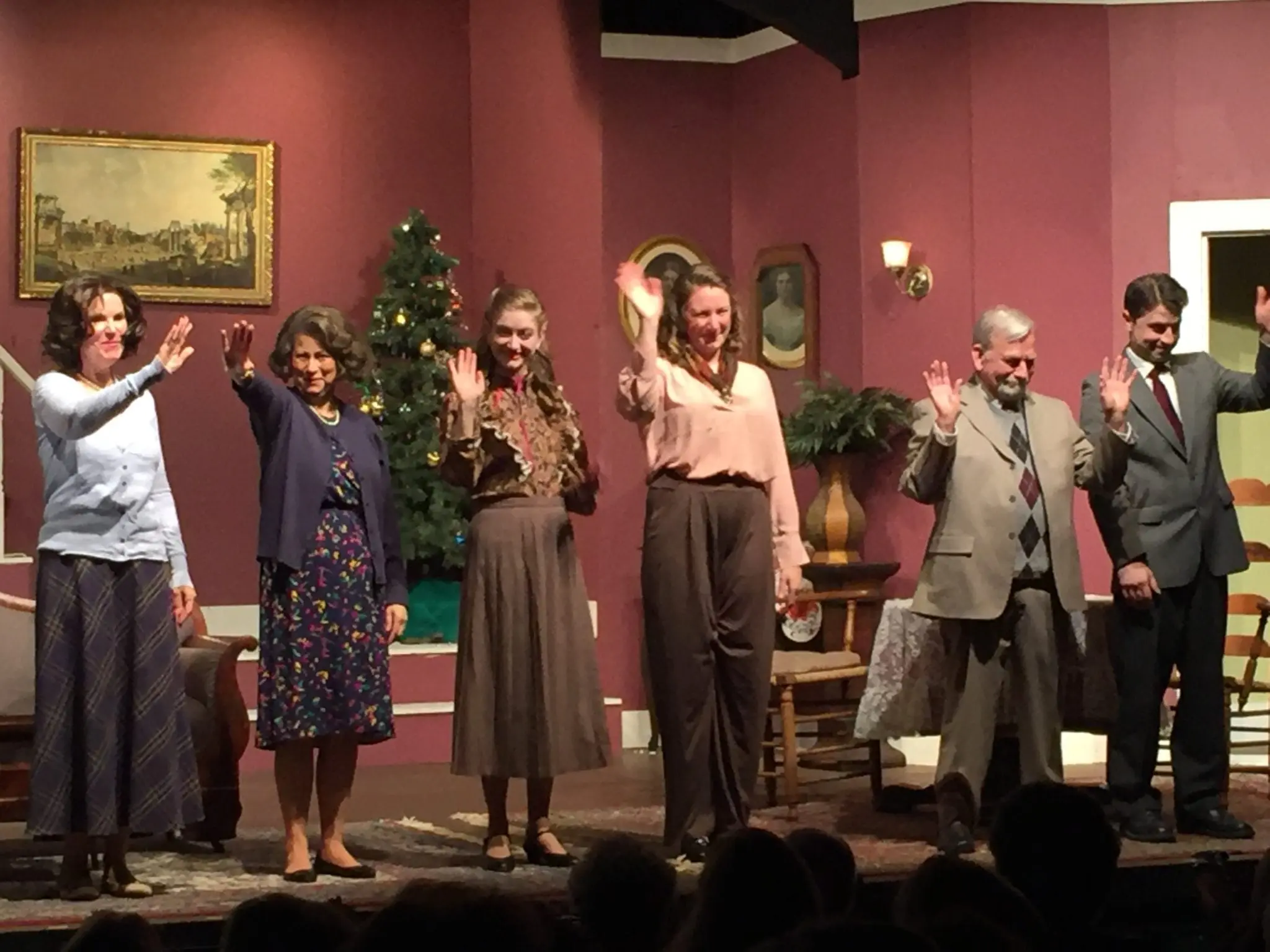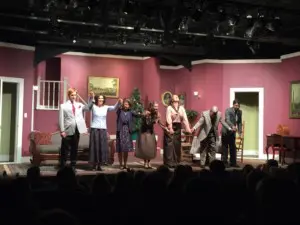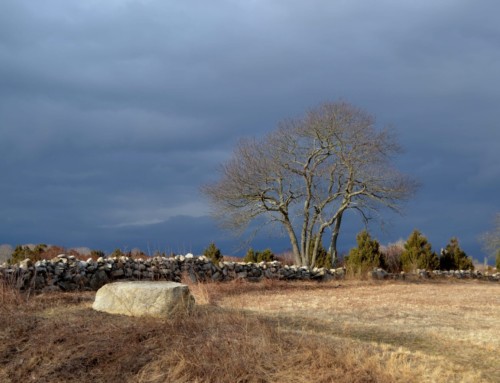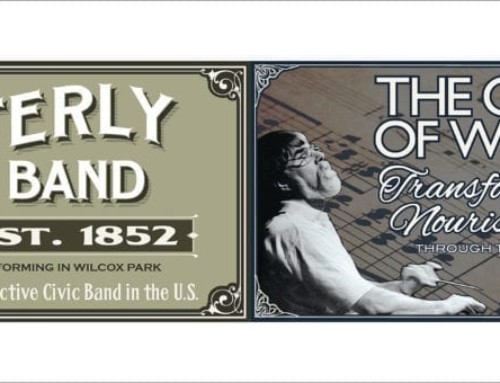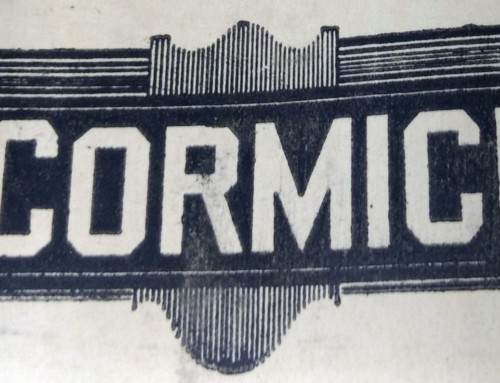An interesting play with a unique outlook on the issues of family rivalry, ethnic pride and bigotry, The Last Night of Ballyhoo by Alfred Uhry as presented by Granite Theatre is a refreshingly different, yet not too different, drama with tinges of comedy and romance. The story takes place in December 1939 , as the town of Atlanta, Georgia is experiencing the hype of the movie Gone with the Wind along with the tension of Hitler’s invasion of Poland.
The action takes place mostly in the house of Adolph Freitag, a successful Jewish man of local prominence, living with various sisters, sister-in-laws, and a second generation of younger women, who all seem to be greatly pressured to “hurry up and get married”, as one can assume was the societal norm at that time and place. A few intimate, romantic scenes take place nightly on a train.
Cousins Lala Levy (played with spunk and fun by Sarah Reed, who uses over-the-top dramatics and quirks like eyelash fluttering to squeeze the most out of her character) and Sunny Freitag (played with likeability and confidence by Ali Mitchell) are the two younger women, who have a pretty “sisterly” rivalry when it comes to the pecking order in the house, potential relationships with suitors and even attention at times of grief (it is revealed that both of their fathers have passed away and Lala accuses Sunny of upstaging her at Lala’s own father’s funeral by wearing a new suit.)
Part of the fun of theatre is learning about different cultures and sub-cultures, time-periods and so forth and before seeing this play, I would not have guessed that there would have been such a distinct and complicated social order among the Jewish population in 1930s Atlanta.
The Freitags and Levys are in conflict, not always by their own choosing, but often by circumstance, that many audience members will relate to. They are treated differently by their neighbors because of their religion , yet the exclusive social club they belong to (and Adolph himself was once the president of) also discriminates in ways both subtle and cruel against Jewish people they view as being from “the other side”.
Similar to the theme of self-hatred and division in Spike Lee’s sophomore film effort “School Daze,” The Last Night of Ballyhoo has a serious undercurrent of what it means to be – and not to be – Jewish, at least according to the central family’s point of view in the play. Coming in from the outside, and experiencing this discrimination is a young Jewish businessman Joe Farkas (played sturdily by Hassan DeMartino) from New York City, who is kind of “set up” by Adolph to court Ali.
Lala herself is a bit enthralled with Joe, which leads to several biting back and forth arguments between Lala and cousin Ali. As was apparently of the times, these two young women are indeed competing for their “M-R-S”, although Ali’s collegiate studies and Lala’s dreams of being the next great Southern writer are their focus, their hearts seem intent on settling down. Whether those desires are truly their own or more so pressure from their family and town can be left to viewer’s interpretation.
From Joe’s perspective, at The Last Night of Ballyhoo, the “exclusive country club’s social event of the season,” we feel the pain and humiliation of bigotry and the double edged sword that the prejudice is coming from within. Tom Steenburg plays the arrogant jerk , well to do bachelor, very well as Peachy Weil, who ends up being the messenger of the caste system already in place at the social club to Joe, causing Joe to abandon Ali mid-date.
Director David Jepson and associates have done a fine job of translating this work , which won the 1997 Tony Award for Best Play, for today’s Westerly audience. The cast has done a fine job of pulling off the effect of Southerners (although I must admit to scratching my head in bewilderment at the repeated pronunciation of Macon, Georiga as “MAY-con” instead of the pronunciation of Macon rhyming with “bacon” as I am used to) . As stated, the exactness of the situation may be unique but the universal feelings of family rivalries and societal pressures are universal in nature.
The Last Night of Ballyhoo will continue at the Granite Theatre through May 11.
